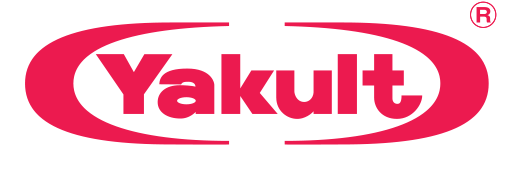Video FAQ's
-

Is There a Special Reason That Yakult Bottles Are Shaped Like That?
-

Does the Lactic Acid Bacteria in Yakult Really Reach the Intestinal Tract Alive?
-

What Time of Day Should I Drink Yakult?
-

Should I drink Yakult every day?
-

What’s the best way to open Yakult?
-

Should we shake Yakult before drinking?
-

Can we heat up Yakult?
-

Can you freeze Yakult?
FAQ's
Q. What is Yakult?
Yakult is a probiotic health drink, which contains more than 8 billion beneficial bacteria (Lactobacillus casei strain Shirota). Many scientific papers have been published and there are many evidences that the bacteria in Yakult are resistant to gastric juices and bile and reach the intestine alive. Daily consumption of Yakult helps improve digestion and helps build immunity.
Q. Who can drink Yakult?
Yakult is recommended for all age groups including children (1 year and above) and pregnant women. Yakult is a health drink which should be consumed everyday as a part of your daily diet.
Q. Can diabetics drink Yakult?
Yakult contains sugar, so if you are diabetic, it is best to consult your doctor.
Q. How did the word Yakult originate?
The word “Yakult” is derived from the word “Jahurto”, meaning “yoghurt” in Esperanto.
Q. Is 80 ml of Yakult enough for both children and adults?
According to our studies, 80 ml of Yakult contains sufficient beneficial bacteria (8 billion Lactobacillus casei strain Shirota) to favourably impact the balance of the gut flora for all age groups. If you wish to consume more than a bottle, as part of a normal balanced diet, you can consume it.
Q. Is there any particular time of the day that I must drink Yakult?
No. Yakult can be enjoyed at any time of the day.
Q. Can I add Yakult to other foods?
Yes. Yakult can be added to cereals, smoothies, milkshakes, cheesecakes or any other cold foods. If the bacteria are subjected to high temperature they die, so do not add Yakult to hot foods or beverages.
Q. Are there any preservatives in Yakult?
No. The product is produced under stringent quality and hygiene control, ensuring safety, peace of mind, and high quality.
Q. What is the shelf life of Yakult?
The shelf life of Yakult is 45 days from the date of manufacture, when kept under refrigerated conditions below 10° C. Once the Yakult bottle is opened, it must be consumed in one shot for the probiotics to be functional.
Q. How should Yakult be stored?
Yakult must be refrigerated below 10°C.
Q. Can Yakult be frozen?
We don’t recommend for freezing Yakult because the bottle may inflate and leak.
Q. What does Yakult taste like? Does it taste like milk or yogurt?
Yakult has a refreshing sweet and tangy taste. Enjoy discovering for yourself.
Q. Is Yakult a food or medicine?
Yakult is a functional food. It is a fermented milk drink that is consumed everyday as a part of the daily diet by 39 million people in more than 38 countries.
Q. What does Yakult contain?
Yakult contains skimmed milk powder, sugar, glucose powder, water and more than 8 billion Lactobacillus casei strain Shirota (our unique strain of bacteria), natural identical flavour.
Q. How many calories does Yakult contain?
Yakult contains 60 kcal.
Q. How much sugar does Yakult have?
Yakult contains approximately 14.1 grams of sugars per bottle (80 ml).
Q. Is Yakult gluten free?
Yes, Yakult is gluten free.
Q. What is the nutritional composition of Yakult?
Nutritional information (per 80 ml)
Energy: 60 kcal Protein: 0.8grams Carbohydrates: 14.1grams Fat: < 0.1grams
Q. Is Yakult a vegetarian drink?
Yes, Yakult is vegetarian.
Q. Is Yakult a halal product?
Yes, Yakult made in Philippines is halal-certified.
Q. Can Lactose intolerant people drink Yakult?
Yakult is a fermented dairy product containing small amounts of naturally-occurring milk sugar (lactose). If you are uncertain about your reaction to dairy, we recommend you discuss with your physicians before trying.
Q. Is the effect of Yakult the same during its shelf life?
Yes, the effect of Yakult is same during the entire shelf life of 45 days. We guarantee 8 billion live beneficial bacteria Lactobacillus casei strain Shirota when refrigerated under proper storage conditions, till expiry.
Q. Why is the colour of Yakult like this?
The colour is light cream because of the Maillard reaction of skimmed milk during the manufacturing process.
Q. Why is the Yakult bottle so small?
Yakult is not a thirst quencher but a health drink that provides specific health benefits. The size is convenient to consume every day and it contains more than 8 billion beneficial probiotic bacteria even in a small bottle.
Q. What is the difference between yakult and yogurt?
YAKULT and yogurt are both fermented dairy products made from milk fermented with live bacteria. YAKULT is unique because it is made using Lactobacillus casei Shirota strain with live bacteria, not the strain of bacteria used in yogurts.
This strain of beneficial bacteria reach intestines alive, which is scientifically proven. YAKULT has been produced for the sole purpose of maintaining a balance of beneficial bacteria in the digestive system.
Yogurt is not a substitute for YAKULT and vice versa. They complement each other as part of a well-balance diet.
Q. Is Yakult is artificially colored?
No, the color of Yakult is naturally acquired when the skim milk powder and sugar are heated together at high temperature (the Maillard reaction).
Q. Is yakult artificially flavoured?
No, the flavors in Yakult are natural, mostly from citrus fruits.
Q. What is lactobacillus casei strain shirota?
Lactobacillus casei are beneficial bacteria. Our unique, patented “Shirota Strain” is exceptionally acid resistant. It easy survive through the gastric juices and bile acids produced during digestion to reach alive in our intestine, helping to keep our digestive system working effectively.
Q. How often should i drink yakult?
It is recommended that you drink YAKULT daily, because the bacteria can’t stay long in the intestines so you need to replenish a fresh one.
Q. Can i drink more than one bottle per day?
Yes, it’s safe to have more than one bottle per day so that you can have more beneficial bacteria in your intestines.
Q. Is this a milk?
No, Yakult is not milk, it is a fermented milk drink that contains skim milk powder and sugar with beneficial bacteria Lactobacillus casei strain Shirota that promote a better digestive system.
Q. Is it a new product?
Although Yakult is officially new in UAE, it has been available for over 80 years in Japan and is enjoyed by more than 39 million people world-wide every day.
Q. How quickly can i see the effect of yakult?
YAKULT is a daily investment in a healthy life. It can form part of a healthy diet aimed at maintaining our body in optimum condition.
All individuals are different and so the effect of Yakult is likely to vary from individual to individual. Normally it takes about a week to a few weeks.
Q. Do the bacteria in yakult inhabit in the intestine?
No, the Lactobacillus casei Shirota pass through the digestive system with food and are not retained in the body. They therefore leave the body after a day or so and this why we recommend one Yakult every day.
Q. Is yakult suitable for babies and children?
Yes, children 1 year and older can have a bottle of Yakult per day. Children love the fruity taste and it is both safe and beneficial for them. For further information, please visit our website: www.yakultme.com
Q. Is yakult suitable for pregnant and breast-feeding women?
Yes, Yakult is safe to drink during pregnancy. It contains one type of
bacteria only – Lactobacillus casei strain Shirota.
Constipation and indigestion (acid relux) are common during pregnancy.
We have received a lot of positive feedback from people commenting on
the relief that drinking Yakult has provided in maintaining a balanced
intestinal flora.
Q. Is yakult fat and cholesterol free?
Yakult is virtually fat free and contains NO cholesterol.
Q. What is the difference between yakult original & yakult light?
Yakult light provides the same benefits as original Yakult. The difference is
Yakult light has no added sugars as it uses only natural sweeteners and also
25% less in calories compared to Yakult original.
Q. To whom yakult light is more suitable?
Yakult light has the same beneficial effects as original Yakult and its very
suitable for People on a Diet Routine & People with Diabetes.
Q. How many calories per bottle of yakult light?
Calories – Each bottle contains 45Kcal, about the same as a small apple.
